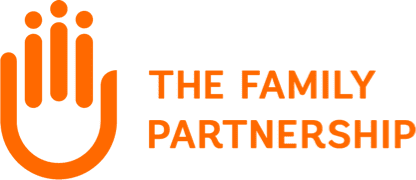Getting Things Right for Racial Equity
The Family Partnership was chosen as one of only ten organizations across the United States to work on the Alliance’s Change in Mind initiative which promotes using neuroscience in programming and advocating for its use in public policy, in order to revitalize communities.
Through this partnership with the Alliance for Strong Families and Communities, The Family Partnership has made great strides in building families, vital communities, and better futures for children in the communities that we serve. Recently, John Everett Till, Senior Vice President of Strategy and Innovation at The Family Partnership, has written a compelling article for Alliance for Strong Families and Communities about how social services can use a 2Gen approach to fight poverty but while using this approach to fight poverty can these social services use this approach to help the racial equity problem in this country, which is a huge barrier for people when trying to escape the cycle of poverty:
Getting Things Right for Racial Equity
By John Till, Senior Vice President of Strategy and Innovation
“Raise your hand if you believe we can end poverty” asked keynote speaker Anne Mosle, vice president and executive director of Ascend at the Aspen Institute, as she opened the first-ever Minnesota 2Gen Summit last fall. The room of over 150 policymakers, advocates, and practitioners working with children and families was full of raised hands. That optimism is good news for state and national efforts to end poverty through a two-generation approach that engages both parents and children around a set of strategies to address intergenerational gaps caused by adverse childhood experience and mental health, families’ isolation within communities, disparities in educational attainment and employment, household financial precarity, and the need for increased access to early education for children in vulnerable households. People believe change is possible, and have the will to achieve it.
So how about racial equity? If the question had been posed this way: “Raise your hand if you believe we can end racism?” Or this way: “Raise your hand if you believe we can achieve racial equity?” Would as many hands have been raised? Maybe not.
I knew I was working in the right organization seven or eight years ago, when I ran into our CEO at a “Dreamer’s” march for the future of immigrant youth. But since the 2016 elections, a lot has changed in our country and community. My partner, an immigrant from the Philippines, and I watch the nightly news very intently. Our country is very divided. While many recognize how violent and traumatizing it is to split up undocumented families through aggressive immigration enforcement, many others—including some of our neighbors—were very happy to see DACA’s limited amenities taken away. Similarly, intolerable acts of police violence against African American communities continue (as they have since our nation’s founding) and we clearly lack the political will as a nation to solve this problem and curb police violence.
So where do we go from here? I’m very reluctant to take Voltaire’s stance that we should each mind our own business and simply “cultivate our own gardens.” Ultimately racial equity will only be advanced if we join with the social movements that are demanding change. Both public policy advocacy and social movement action are absolutely essential to advance racial equity. Our nation’s history proves that. And trying to promote racial equity solely through direct services is limited, and itself precarious.
We’ve known this for a very long time. W.E.B. DuBois’s 1903 book The Souls of Black Folk has a chapter on the Black Reconstruction and why it failed. The educational and social programs of the Reconstruction fell apart when the political forces that sought to promote racial equity lost ground in government. Reconstruction programs to educate and empower African Americans in the South were poorly funded to begin with, and did not have sufficient support to build strong local institutions. The gains of the Reconstruction were lost, setting back the struggle for racial equity for decades.
Learning from these mistakes, we need to act on multiple levels. We need strong programs. We need to know that our programs work at least as well for minorities as they work for European Americans—this country has growing race-based disparities. Our organizations need to participate in the social movements of our day addressing immigrant rights, police violence against communities of color, and more. And we need to support public policy that brings a racial equity lens to all the decisions and resource allocations that elected officials and policymakers take.
Are we ready for this? With growing disparities, we have a limited amount of time to get things right.
Join the Alliance Peer Exchange group on Advancing Equity, which brings together leaders from the social sector who work to develop and advance diversity, equity, and inclusion as a driving force in meeting the needs of children, families, and communities.
